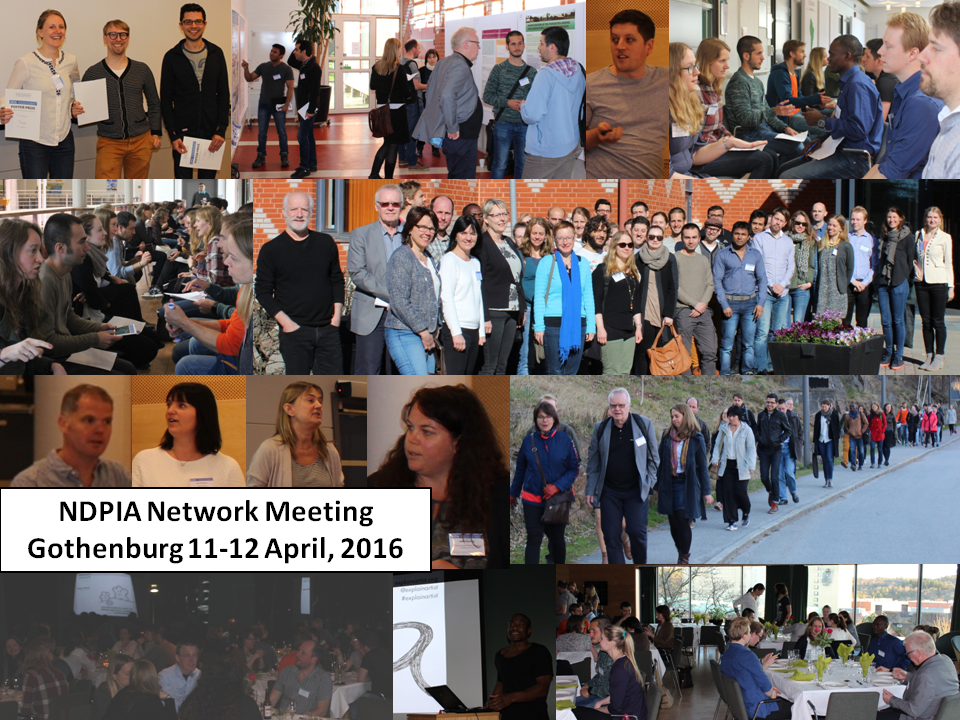
Click on the collage for a lagrer picture.
The second network meeting of the National Doctoral Programme in Infections and Antibiotics (NDPIA) was held in Gothenburg 11-12 April on the theme “Microbiota in Health and Disease”. The meeting started off with an introduction to NDPIA and international partners from Norway (Norwegian Research School in Infection Biology and Antimicrobials, IBA) and Germany (Helmholtz Center for Infection Research as well as the International Leibniz Research School). Participants got to know each other via an early speed-dating session and could engage in deeper scientific discussions at the two poster sessions and via additional networking opportunities during the meeting. There were also short presentations by nine NDPIA programme participants (selected from submitted abstracts) in addition to four lectures focusing on microbiota by invited speakers. The final session was dedicated to input from NDPIA participants regarding follow-up of the meeting, suggestions for future activities to be organized by/with support from NDPIA and with respect to further networking among NDPIA participants.
Three poster awards of 5 000 SEK each, to be used for participation in a national/international conference or for a research visit, were presented to the PhD students Johan Bengtsson-Palme (Dept. of Infectious Diseases at University of Gothenburg) and Malin Alsved (Dept. of Design Sciences at Lund University) and to Dr. Marius Linkevicius (Dept. of Medical Biochemistry and Microbiology at Uppsala University) – congratulations!
The meeting was appreciated both for its lectures/presentations and network opportunities. In particular the speed dating, where each and everyone got the chance to initiate contacts with all the other participants during a two hour session, was highlighted during this second network meeting of NDPIA.
The local hosts Ingrid Bölin and Carl-Fredrik Flach at the University of Gothenburg are greatly acknowledged for organizing the successful meeting!
Link to programme with presentations
Link to take home message about “explainartist” – how to share knowledge creatively, described by PhD student Ajibola Omokanye, University of Gothenburg (www.explainartist.org).

